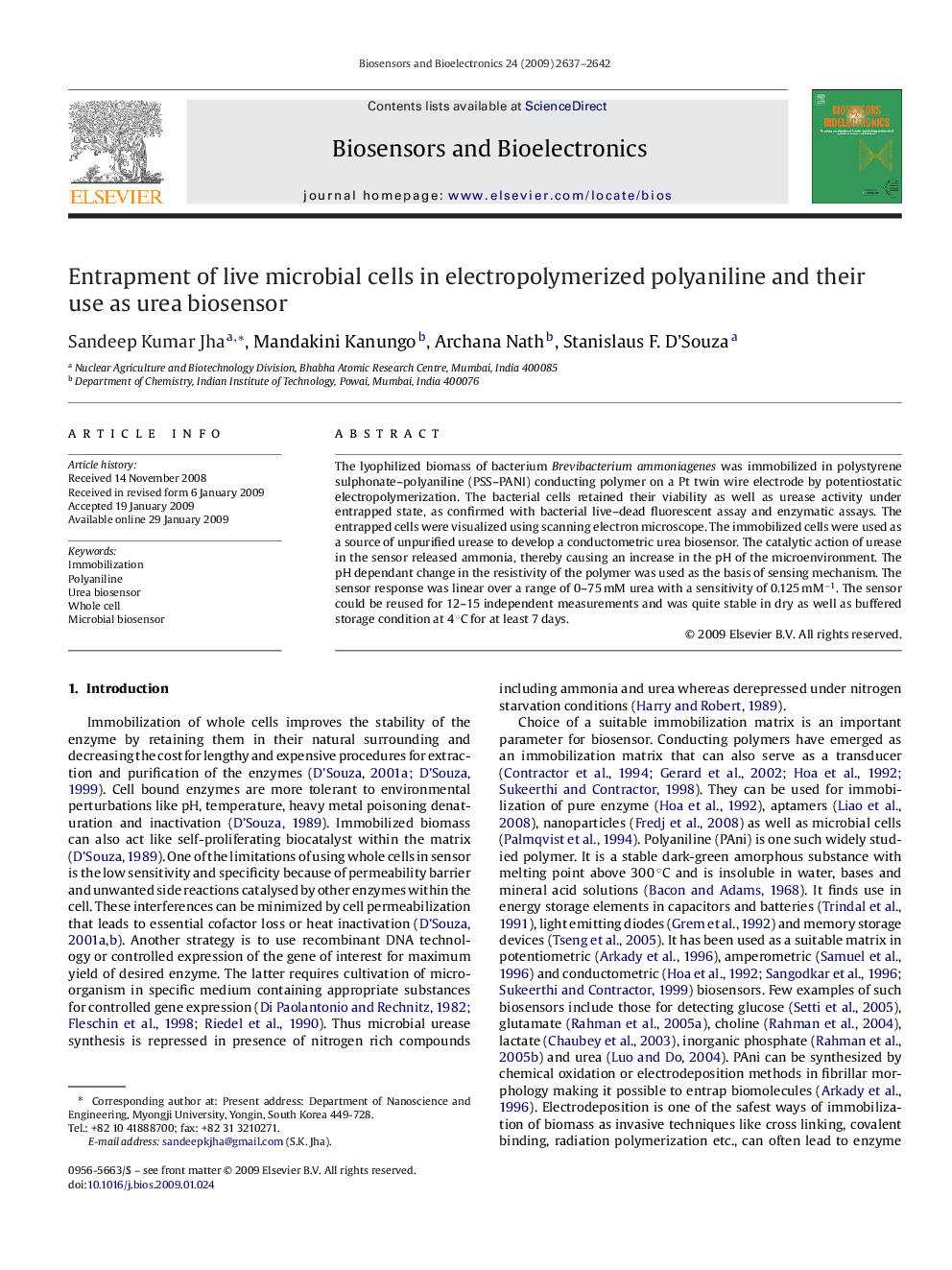| کد مقاله | کد نشریه | سال انتشار | مقاله انگلیسی | نسخه تمام متن |
|---|---|---|---|---|
| 868723 | 909812 | 2009 | 6 صفحه PDF | دانلود رایگان |

The lyophilized biomass of bacterium Brevibacterium ammoniagenes was immobilized in polystyrene sulphonate–polyaniline (PSS–PANI) conducting polymer on a Pt twin wire electrode by potentiostatic electropolymerization. The bacterial cells retained their viability as well as urease activity under entrapped state, as confirmed with bacterial live–dead fluorescent assay and enzymatic assays. The entrapped cells were visualized using scanning electron microscope. The immobilized cells were used as a source of unpurified urease to develop a conductometric urea biosensor. The catalytic action of urease in the sensor released ammonia, thereby causing an increase in the pH of the microenvironment. The pH dependant change in the resistivity of the polymer was used as the basis of sensing mechanism. The sensor response was linear over a range of 0–75 mM urea with a sensitivity of 0.125 mM−1. The sensor could be reused for 12–15 independent measurements and was quite stable in dry as well as buffered storage condition at 4 °C for at least 7 days.
Journal: Biosensors and Bioelectronics - Volume 24, Issue 8, 15 April 2009, Pages 2637–2642